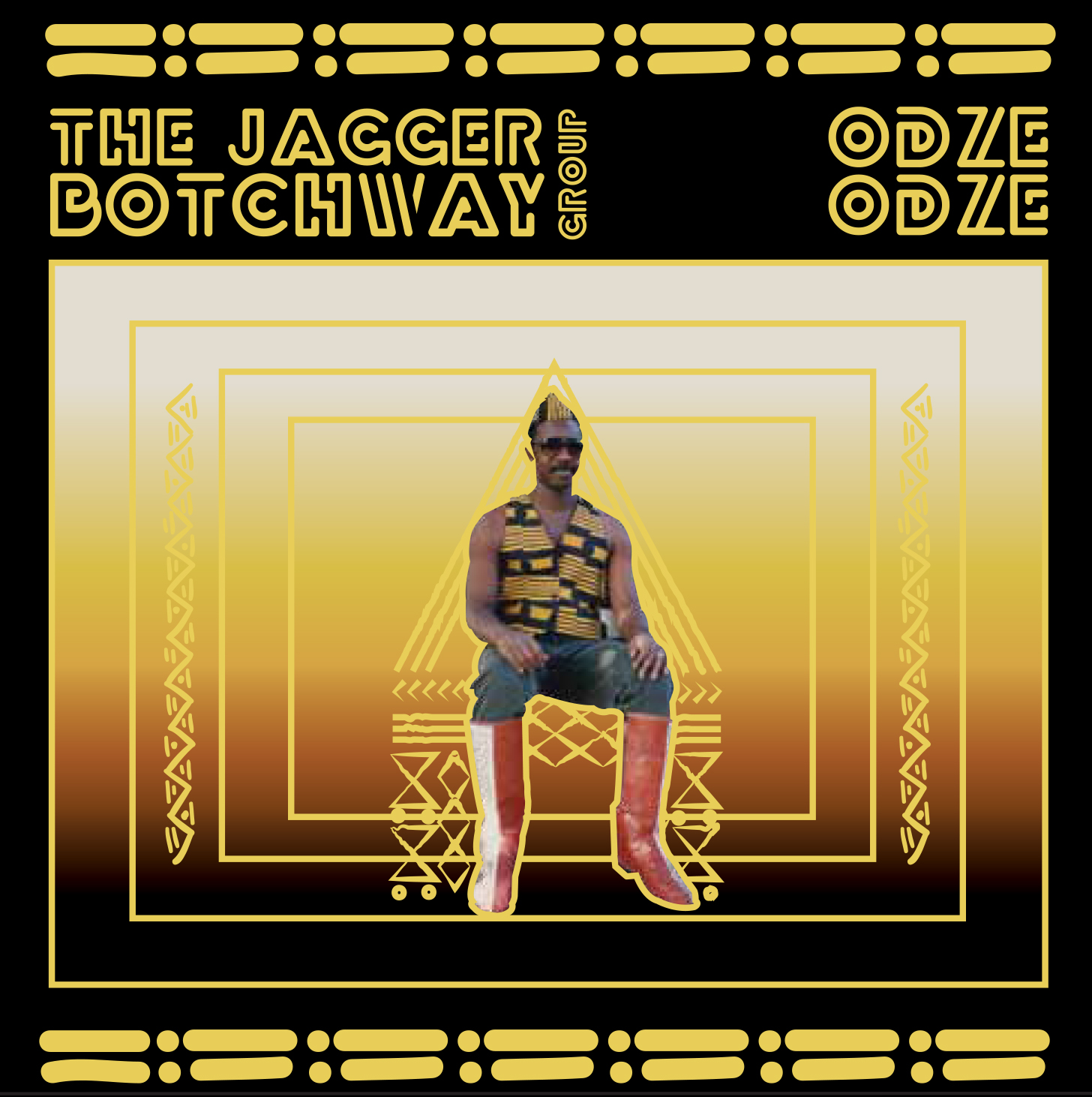Here's one for you to pull out whenever you need to inject a little bit of sunshine into your day. The Jagger Botchway Group's recently released album Odze Odze drenches highlife, traditional Ghanaian rhythms, and Afro-funk in the bright, shiny, cheesy sound that was born with '80s synths, drum machines and smooth horns, and lives on today in much Caribbean soca and calypso. Ghanaian funk master Jagger Botchway made his name playing with the famous Hedzoleh Soundz and Hugh Masekela in the '70s, and by orchestrating the Afro-funk album Moving World by the Kelenkye Band. Odze Odze is a definite descendant of the Afro-fusion Hedzoleh Soundz was pushing, mixing local music with instruments and sounds brought by new technology and foreign styles.
The Cultures of Soul label recently recovered these misplaced soca-highlife-funk tapes Botchway laid down several years ago with many of his former collaborators, and has released them with an appendix of remixes by a handful of European and American producers. The result is some old-school funky fusion, laden with horns and catchy vocal choruses, wrapped in a glittery fabric of synthetic marimbas and metronomic snare drum hits.
The title track, "Odze Odze," kicks off our musical excursion with real force, dropping us right into the thick of a horn vamp with that relentless Phil Collins-esque snare drum backbeat. Botchway sings call and response with a male chorus as keyboards plunk out upbeat rhythmic accents and a djembe solos. The sound is often dense and intense, throwing energy at us without pause, which would lend the tune (and much of the album) well to an all-night, nonstop dance mix at a disco. "Take Time" shares this same energy, as well as a similar sound overall. Botchway brings us a good message in this tune, encouraging us to let go of some responsibility and "take time off" (and maybe come dance to the Jagger Botchway Group). The music itself certainly evokes a crowd at a club on a Saturday night, adorned in velour and polyester, stepping right and left under an ever-shifting display of colored lights.
[embed]https://www.youtube.com/watch?v=_eLH0l6oaXM[/embed]
"Moko Le Dzen" continues with much of the same, bringing a bit more Afrobeat into the mix, with sustained synth chords and several simple repeating guitar licks overlaid. Here we also get a needed drum breakdown, some echoey guitar fingerstyling evoking highlife and smooth jazz, and a lush vocal chorus leading us out. "Kahe Odzole Oye" makes a clear connection to the more modern fusion that Nigerian shapeshifting bandleader Lágbájá has been developing over the past two decades. Similar to Lágbájá, on "Kale Odzole Oye," Botchway's group melds Caribbean soca with highlife and folk drumming, creating a cheesily bright atmosphere, with vocal choruses trading lines with a tight trumpet section. "Obleku" has a similar feel, with snappy horn choruses, shimmery synths and a syrupy sax solo.
"Oblotsiri" is ardently upbeat, with swinging, crisp drums and twanging, juju-esque guitars, breaking down into a drum and spoken-word segment with a chant of "Jah Rastafari." The last original tune on the album, "Chapter 5," calls to mind the '70s Afro-fusion band Osibisa, with a dramatic atmospheric opening with drums and flute, leading to retro echoing drums and smooth jazz trumpet.
Appending the original cuts are five remixes, crafted by several producers: Africaine 808, Ruf Dug, Alma Negra and Names You Can Trust. Unfortunately, most leave something to be desired, subtracting the vocals from Botchway's songs and paring them down to repetitive instrumentals. On the bright side, this focus on instrumentals does clarify some of the really skilled acoustic drumming and overall musical ability that lies beneath the synthetic wrapper (i.e., the end of track nine, "Moko Le Dzen" remix). These cuts could be given new life as rap backing tracks (perhaps FOKN Bois could take it up). Look towards Jagger Botchway and his group to pump up your next dance party or to accompany your next sunny day drive.









